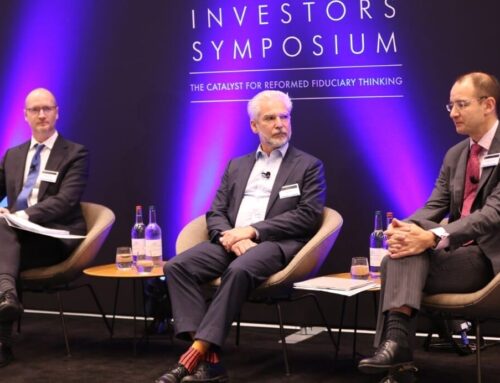Does Engie’s 49.8% Rally Signal More Upside After Renewable Energy Contract Wins?
November 10, 2025
-
Ever wondered if Engie’s strong share price run means it is still a great buy, or if the best opportunity might have passed? Let’s dig in and see what lies beneath those impressive numbers.
-
Engie’s stock has climbed 49.8% over the past year and is up a striking 36.4% so far this year, signaling that investors are seeing a lot to like about its prospects, or perhaps just re-evaluating its risks.
-
Analysts and market watchers have tuned in to the company after several major renewable energy contracts were announced, boosting sentiment and optimism. At the same time, rising energy prices and Engie’s push to reduce its carbon footprint have featured heavily in industry headlines, providing more reasons for the recent rally.
-
According to our valuation model, Engie scores a 3 out of 6 on undervaluation checks, putting it right in the middle of the pack. Up next, we will break down the valuation in detail and reveal an even smarter way to size up the stock before you decide what it is really worth.
The Discounted Cash Flow (DCF) model estimates a company’s value by forecasting its future cash flows and then discounting them back to today’s terms. Essentially, it tries to answer what Engie’s future earnings are worth in today’s money by using analyst projections and mathematical modeling.
Looking at Engie, the model used is the 2 Stage Free Cash Flow to Equity approach. For the latest twelve months, Engie reported a Free Cash Flow (FCF) of -€6.64 billion. Analysts expect a strong rebound in the coming years, with FCF projected to reach €2.42 billion by 2029. The forecasts extend for a decade with estimates peaking in 2027 at €3.23 billion and then gradually moderating through 2035, as extrapolated by Simply Wall St beyond available analyst data.
According to this DCF analysis, the intrinsic value of Engie’s shares is calculated at €18.98. However, this represents an 11.6% premium compared to the current trading price, which means the stock appears overvalued based on these projections.
Result: OVERVALUED
Our Discounted Cash Flow (DCF) analysis suggests Engie may be overvalued by 11.6%. Discover 864 undervalued stocks or create your own screener to find better value opportunities.
The Price-to-Earnings (PE) ratio is a widely used valuation tool for profitable companies like Engie, as it helps investors gauge whether the stock’s price fairly reflects its earnings power. Because the PE ratio ties directly to the company’s bottom line, it remains especially useful for firms that have stable, positive earnings and operate within industries where profitability is a key measure of value.
It’s important to remember that a “normal” or “fair” PE ratio varies based on expectations for growth and risk. Companies with higher expected earnings growth often command higher PE ratios, while those facing uncertainty or greater risks tend to trade at lower multiples. For Engie, the current PE ratio stands at 10.4x. This is notably less than both the Integrated Utilities industry average of 18.3x and the peer group’s average of 20.0x. This suggests the stock is trading at a discount relative to its competitors.
Simply Wall St introduces the concept of a Fair Ratio, which is a proprietary estimate of what the PE ratio should be for Engie based on a holistic view of its earnings growth, industry landscape, profit margin, company size and risk profile. Unlike simple peer or sector comparisons, this Fair Ratio provides a more nuanced valuation lens. For Engie, the Fair Ratio is calculated at 14.0x, indicating what the market might reasonably pay considering its unique characteristics.
When comparing Engie’s actual PE of 10.4x with the Fair Ratio of 14.0x, the difference is fairly significant. This analysis suggests that, even after a strong share price run, Engie still trades at a discount based on its expected earnings and underlying company fundamentals.
Result: UNDERVALUED
PE ratios tell one story, but what if the real opportunity lies elsewhere? Discover 1402 companies where insiders are betting big on explosive growth.
Earlier we mentioned that there is an even better way to understand valuation, so let’s introduce you to Narratives. A Narrative is simply your story about a company, connecting what you believe about Engie’s future (like growth, earnings potential and risks) with the expected financial results, and from there to what you think the stock is worth today. Instead of only relying on rigid models, Narratives allow you to combine your perspective with real financial forecasts in an intuitive way, giving context to fair value estimates.
Narratives are easy to use and accessible to everyone on Simply Wall St’s Community page, where millions of investors create and share their reasoning. By building a Narrative, you see how changes in the business, market, or your assumptions update both the forecast and the resulting fair value in real time. For example, one investor might expect Engie’s earnings to fall to €3.8 billion and view €17.5 as fair value, while another sees new projects boosting earnings to €4.5 billion and believes €24.0 is justified.
This approach makes it easier to spot when the current price offers a buying or selling opportunity and keeps your investment view flexible as news or earnings updates arrive. With Narratives, your decision-making is powered by both numbers and context, not just standard models.
Do you think there’s more to the story for Engie? Head over to our Community to see what others are saying!
This article by Simply Wall St is general in nature. We provide commentary based on historical data and analyst forecasts only using an unbiased methodology and our articles are not intended to be financial advice. It does not constitute a recommendation to buy or sell any stock, and does not take account of your objectives, or your financial situation. We aim to bring you long-term focused analysis driven by fundamental data. Note that our analysis may not factor in the latest price-sensitive company announcements or qualitative material. Simply Wall St has no position in any stocks mentioned.
Companies discussed in this article include ENGI.PA.
Have feedback on this article? Concerned about the content? Get in touch with us directly. Alternatively, email editorial-team@simplywallst.com
Terms and Privacy Policy
Search
RECENT PRESS RELEASES
Related Post




